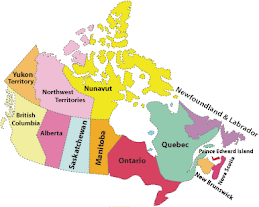Recession refers to a significant drop in economic activity, lasting more than a few months, as measured by employment rate and real gross domestic product (GDP). They are undesirable, but in a market economy such as Canada’s cycles of recession and prosperity are recurrent features of long-term economic growth. Recessions occur for various reasons. Most often, businesses build up inventories and, consequently, cut back their production and lay off workers, thus depressing earnings. The spiralling effect of lower income and low spending also dampens confidence in the economy. Large-scale natural disasters such as floods and droughts or trade wars between countries can induce recessions
How does it affect Canadians?: During the last recession in the early 1990s, the Canadian economy shrank substantially. From 1990 to 1991, real GDP decreased more than 1 per cent, and the unemployment rate rose above 10 per cent in both 1991 and 1992. Governments, both federal and provincial, posted higher deficits because they collected less tax on income and corporate profits but spent more money on programs such as employment insurance benefits. Governments try to avoid or overcome recessions by adjusting monetary and fiscal policies—increasing spending, cutting taxes, and lowering interest rates—and each of these actions helps create demand for goods and services. The Bank of Canada reduced interest rates several times in the early 2000s to avoid a potential recession.


